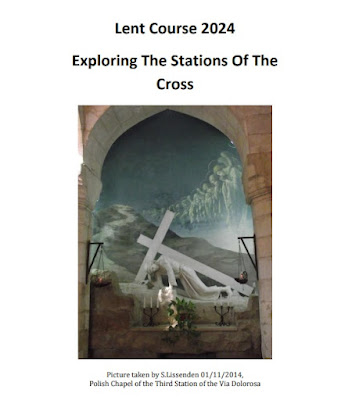Instead of starting at the very beginning, a very good place to start this sermon is with the ending of our service. The prayer of blessing at the end of this service aims to ‘crystallize all that has gone before’ in this service and ‘focus it into a commissioning for all we shall set our hand to once we depart.’ It sends us out to be a blessing to others by making ‘the whole world a Eucharist.’ Being a blessing is what I’d like to explore briefly with you this evening.
We come to be blessed in order that we become a blessing to others. That is the pattern in today’s Old Testament reading (Genesis 12.1-4a) where we read of God saying to Abraham, ‘I will bless you … so that you will be a blessing … and in you all the families of the earth shall be blessed.’
We might wonder how one person can become a blessing to all the families of the earth? The answer is, in the same way as Jesus did through the Last Supper. Abraham set out on a journey to the Promised Land which formed the people of God, who were called into being to be a blessing to other nations. In so doing, he gave all who follow after him a path to follow, a story to inhabit, a people to which to belong and a mission to which they are called. The people of Israel followed that path and inhabited that story when they left slavery in Egypt to journey through the wilderness to enter the Promised Land and established themselves there so that, when Solomon was on the throne, other nations came to learn the wisdom of God. Jesus followed that path and inhabited that story when he walked through the valley of the shadow of death to set a banqueting table for all peoples in the mansions of heaven. We become a blessing to others when we take that same story and experience of belonging out with us from church into our daily lives by seeking to make the whole world a Eucharist.
Sam Wells, Vicar of St Martin-in-the-Fields has said that: ‘The mission statement of the church is to make the world a Eucharist. So faithful service means practices that look like worship—those that gather people and form them as one body, that reconcile and open lives to repentance and forgiveness, that proclaim truth and reveal God’s story, that embrace need and unleash gifts, that express thanks and are open to the Holy Spirit, that share food and wash feet.’ ‘It means extending God’s invitation to all, bringing all to repentance and joining in creation’s praise. It means proclaiming the truth of God through the history of the world and the dynamics of the universe and sharing discernment within the silence of God. It means articulating human need and enabling reconciliation. It means restoring a good relationship between humanity and its ecological home, stirring the heart, setting about work in a spirit of thanksgiving, discovering power under the authority of the Spirit, confronting evil with confidence in the sovereignty of God and sharing in the generous economy of God so that nothing is wasted. Thus all the practices of worship become the habits of discipleship.’
Tom Wright says that, ‘Blessing is not primarily about what God promises to do to someone. It is primarily about what God is going to do through someone ... Blessed are the meek, [Jesus says,] for they will inherit the earth: in other words, when God wants to sort out the world, to put it to rights once and for all, he doesn’t send in the tanks, as people often think he should. He sends in the meek; and by the time the high and mighty realise what’s happening, the meek, because they are thinking about people other than themselves, have built hospitals, founded leper colonies, looked after the orphans and widows, and, not least, founded schools, colleges and universities, to supply the world with wise leaders.
What is God going to do through you? How might you be a blessing to others? It’s not a done deal! The people of Israel had to be exiled from the Promised Land before they returned to their vocation to bless others. God came into the world as a human being because humanity was oppressing, rather than blessing, others. Around our world too many nations are building walls and creating hostile environments instead of blessing others. So, we desperately need churches that will be the catalysts preparing us to be a blessing to others; and worship is the crucible in which such change begins. As St Augustine wrote: 'You are the Body of Christ. In you and through you the work of the incarnation must go forward. You are to be taken. You are to be blessed, broken and distributed, that you may be the means of grace and vehicles of eternal love'; that you may be a blessing.

































